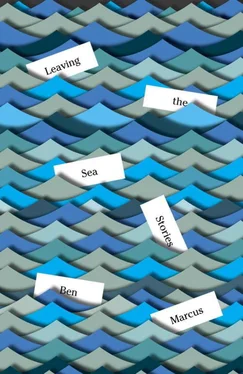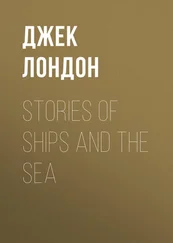At work today, Thomas the Dead, as he had privately named himself, made a grave miscalculation by using baby talk with a colleague. He had not previously stooped, even with his own child, to baby talk. Why give the boy another reason to look at him in that cold, queer way of his? Nor had Thomas indulged in the sweet-toned animal coos that his colleagues babbled at one another when they banked and crashed around the lab on their foolish errands. Thomas preferred last words, the sort of speech to be discharged on one’s deathbed. He guessed that some unpleasant number of decades ago, as a teenager, when he wore a thin beard and sported a tie with his short-sleeved dress shirts, he must have sounded old and tired and bitterly impatient, a youth who had already drawn firm conclusions on the key issues of the day, back when certainty was a young man’s best chance at securing a mate and avoiding a life of hellish solitude, not that this had worked so neatly for him. Thomas was one for whom speech, the bursting, songlike kind that showed the world what an imbecile you were, was an annoyance that also happened to sour his body like a toxin.
Thomas and the colleague had been refilling their coffees at the same time because he had failed to calibrate his advance on the self-service beverage cart. Thomas’s mistake, like most of the behavior he leaked into the world, had been avoidable: to join another human being in a situation that virtually demanded unscripted, spontaneous conversation, and thus to risk total moral and emotional dissolution. Death by conversation, and all that. Entirely avoidable. After all, he had seen the colleague approaching, a hand-painted mug dangling from her finger. Thus the peril of a bald, unpoliced encounter with her could not have been more glaringly clear, and the blame was squarely in his corner. Possibly it was the way the colleague glided shamelessly past Thomas’s desk. What is it called, he wondered, when you provoke feelings of inferiority and general shittiness in others simply by the way you walk? When your mode of personal locomotion, in its devil-may-care mastery, serves as a scold to everyone fat and moist and ingloriously failed, sitting in their chairs, tired, swollen, and angry?
The warnings didn’t matter. The colleague flew past his desk, flaunting how alive she was. He could smell her superiority and sheer you’ll-never-have-me-ness, the bottled freshness that had shrouded her in a twister of perfume. Can one copulate against such a column of wind, he wondered? Are there handholds? And Thomas, triggered by scent and irritated lust, swallowing a powerful urge to dry heave, sprang after her as if she was a vehicle he suddenly needed to board, despite knowing (or not knowing vividly enough) that he’d only have to wait behind her at the coffee cart and worry the air with his oversized body.
Anyway, Thomas couldn’t fathom how a person who hoped to live through the day could subscribe to such a Lego-strewn fantasy of worker relations the word colleague implied: as if a group of people whose heads were darkened by the very same hovering ass—something he decidedly never learned in night school was the term for how the human voice sounded when the mouth was smothered by an oily slab of buttock—would ever link arms, sing songs, and be massively productive together, just because they peed against the same wall or starched themselves into a stupor on the salted Breadkins from the vending machine every day. Colleague was a dressed-up word for the coworkers who would feast on his chest if they ever found him unconscious in the bathroom, yet she was his colleague, or coworker, or peer, or, well, enemy, and Thomas couldn’t help thinking of England. Really he pictured an old, sodden map of England, which, even as it molted in his undisciplined imagination, he knew could not be prodded for even the most glancing accuracy (who policed, he wondered, just how badly people imagined things to themselves?). It wasn’t so very far away, this England, with its bearded men who fought to the death over Plato, who politely disrobed and entered the sexual transaction without a break in their conversational patter, as if it would be the highest rudeness to gasp or cede rhetorical ground at the moment of penetration, even with a half-ready British piece of genitalia that reeked of potatoes.
The colleague walked gaily down the hallway, while Thomas, drafting in her tunnel of merriment, took up the somber rear. The two of them in procession—like a dashing mom with her slob kid in tow, thought Thomas (a kid who was noticeably older than his mother)—past the outlying desks and mail bins and various lab doors that were fitted with, instead of doorknobs, the long chrome lever arms that one normally saw on walk-in freezers. Thomas may as well have called after her: Mommy, wait, and he felt a sudden urge to gurgle, fall to the floor, and rub himself for comfort. Chalk that up to another entirely appropriate response he would never indulge. If only he had a dead body, or was it money, for all of these, uh, unpursued urges.
They were not exactly friends, Thomas and the colleague, but the two of them coffined up in the same stinking diesel elevator enough times—trespassing each other’s borders with wartime regularity and altogether too little overt treachery—that didn’t it, he thought, merit some kind of default marriage in the end? Was there a better working definition of marriage than a weapon-free battle between exhausted adults, with an agreement to gaze above each other’s heads, icing each other out with indifference? Cold War would be the way Ramsey, in equipment, would dismiss it to Thomas, Ramsey who delivered transmissions on married and fathered life whenever Thomas had to sign out gear—a beaker, a tray, and an allergen-percolating tool the office referred to as the Bird’s Face—and who frequently reported the sickeningly early hour he was wrenched awake to monitor his paper-eating, tantrum-spurting kid, a youngster who by eight thirty in the morning was at least four hours deep into his terrible day, according to Ramsey, battle-scarred and as strung out as a torture victim, which, come to think of it, was a pretty adequate description of Ramsey himself. In fact, whenever Thomas tried to picture Ramsey’s boy, he pictured another Ramsey, and saw two red-faced Ramseys chasing each other around an oatmeal-splattered room. Big Ramsey and Little Ramsey, trying to kill each other. A classic story of father and son.
Thomas guessed that at times, maybe in the elevator, the colleague could smell how little he had slept, while in retaliation he could see the sauce stain on her back, or the rumpled tidings of underwear advancing over her waistline. That was a fair piece of intimacy, in the end. Shouldn’t they, by now, have already trucked past the romantic swells and decadent fits of sharing indulged by the other middle-aged marrieds, toward a brisker season of restraint and theatrical indifference regarding each other’s mild but steady pain? If they knew each other at all, that is.
For Thomas there was only one outlet for a journey down this hallway—the coffee cart—since he lacked clearance to any of these rooms or freezers or whatever they were. On bright-lettered signs the doors might have cautioned: Carcass inside. Turn back! But turning back would draw too much notice, and he doubted he could rear up and reverse course without some kind of verbal narrative support of his decision— I’m turning back now because I’m scared! —and the thought of such a strange and conspicuous outburst, even one more finely stated, made him feel vaguely sick. What kind of idiot does things, then says why?
So off he trotted after her, drugged with regret and adrenaline and the sort of fear that felt like a boring old friend. He had no mug of his own. He’d have to work that out later. And there was an issue with his, uh, pants. Ahem. But for now he was up and at large and he did his best to gather his face and body into an expression of deep purpose, even if there was none he could rightly claim.
Читать дальше












